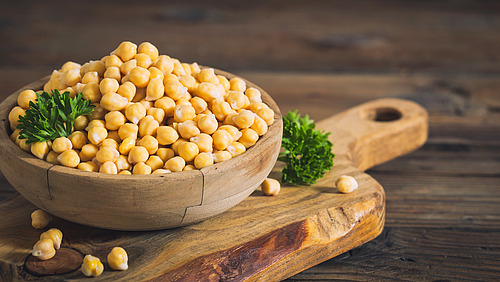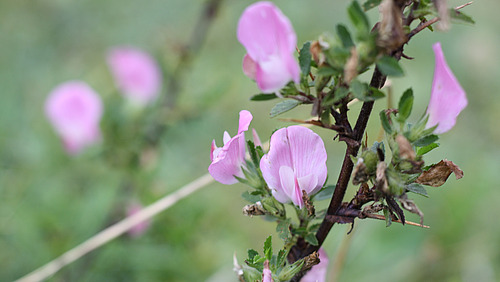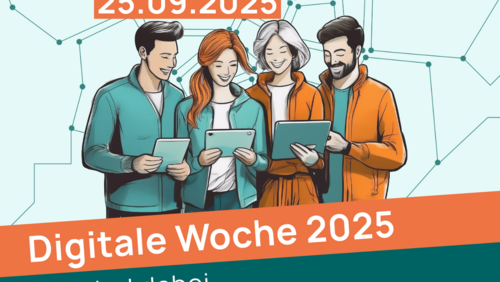As part of the zukunft.niedersachsen initiative, the Volkswagen Foundation is providing a total of € 18.9 million in project funding over five years via the Ministry of Science and Culture. The RLA will research, develop and test the use of artificial intelligence in agriculture in close cooperation with industry.
The German Research Center for Artificial Intelligence (DFKI), Osnabrück University (HSOS), the Agrotech Valley Forum e.V. (AVF), the Technical University of Braunschweig (TUBS), the Johann Heinrich von Thünen Institute (TI), the Leibniz Institute for Agricultural Engineering and Bioeconomy e.V. (ATB) and the Netzwerk Ackerbau Niedersachsen e.V. (NAN) are participating in the project under the consortium leadership of Osnabrück University.
University President Prof. Dr. Susanne Menzel-Riedl is delighted that this application has been approved, as it shows two things: "Firstly, the recognition of the great and wide-ranging expertise in artificial intelligence at our university and, secondly, our long-standing and close ties with researchers from our partner institutions and practitioners from the entire agricultural and food sector. In addition to the implementation of our successful application as part of the "Strategically developing potential" call, this is another huge step towards building an interdisciplinary research profile for our university."
Background information: Lower Saxony is one of the most important agricultural states in Germany, both in terms of the area used for agriculture and the economic performance of the agri-food sector - and is therefore particularly suitable for the RLA. Two regions cooperate in the RLA: On the one hand, the region between Oldenburg and Münster with Osnabrück at its center, which has developed into one of the most efficient agricultural economic areas in the world in recent decades. The economic environment, which is characterized by a strong SME sector, is closely linked to Osnabrück University and Osnabrück University of Applied Sciences, which offer ideal scientific conditions for researching and developing the use of AI-based technologies in agriculture and providing constructive and comprehensive support for the transfer into practice. The Agrotech Valley Forum e.V., an application-oriented research institution, pools this and other expertise on agricultural technologies in the northwest.
The second region - Braunschweig - is strongly oriented towards arable farming, unlike the northwest, where animal husbandry plays a central role in the agri-food system. In addition, there are many research institutions in Braunschweig that specialize in agriculture or are close to it through interdisciplinary research. Some of these are now cooperating even more closely with the Osnabrück institutions in the RLA.
The RLA puts scientific findings into practice under real conditions. The special thing about this is that scientific, economic, social and political decision-makers not only work closely together in research, but also in the transfer of the jointly gained knowledge into practice. Time is of the essence, as the agricultural sector is at the heart of the triple global crisis of climate change, biodiversity loss and environmental degradation identified by the UN in particular, as project manager Prof. Dr. Tim Römer points out: "Technologies such as artificial intelligence and robotics offer enormous potential for making agriculture more sustainable. The integration of such technologies will be crucial to achieving a balance between productivity and environmental protection, for example by minimizing the use of water, fertilizers and pesticides and protecting the soil." Prof. Römer continues: "The aim of the RLA is to address the issues and challenges of practical agriculture, to align research and development accordingly and to overcome existing barriers between research and widespread application. In addition, the aim is to strengthen the technological sovereignty of Germany and Europe in order to have a positive and significant impact on the business location."
The RLA can draw on basic research in Osnabrück and Braunschweig in the fields of AI, data science and robotics with a strong application focus on the agricultural and food industry. Questions that need to be answered include a lack of knowledge about the acceptance of new technologies, a sometimes uncertain legal situation for their use, a lack of willingness to invest in this area, unclear findings about the economic viability and the fragmentation of the agricultural sector into many stakeholders with sometimes differing interests.
Geographically, the RLA will be located on an agricultural technology test farm, the FieldLab Agrar, which will be developed into a research location for the project. In addition, so-called use case projects are to be implemented that address ecologically and economically relevant issues. These use case projects are characterized above all by the interaction between different scientific disciplines. For example, one project will investigate how data obtained from smart farming equipment, drones, satellites and robots can be used to determine plant diversity in fields.
The next step in the coming months will be to set up the Fieldlab Agrar and begin the diverse project work.
Further information for the media:
Prof. Dr. Tim Römer, Osnabrück University
Institute of Mathematics
tim.roemer@uos.de





